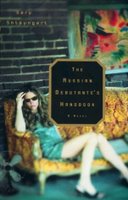or, "What About Russia?"
The survey asked Americans to name the top 10 things they associated with Russia. The top four were communism, the KGB, snow, and the mafia. The sole positive association—Russian art and culture—came in dead last.
In Foreign Policy, the Russian bear contemplates the difficult work of stylizing a favorable public image before hosting the G-8 summit for the first time next summer— when, says Carnegie Endowment scholar McFaul, "7,000 foreign journalists will descend on St. Petersburg looking for something to write about."
To this end the Kremlin erected Russia Today, an English TV station, for $30 million and filled it with American younglings for $60,000 a pop.
But the imported journalists are, in many cases, fresh out of journalism school, know not a word of Russian, and lack basic knowledge of Russian politics or history. For many of them, the experience is a bit of a laugh, a gap year at the Kremlin's expense.
Ooo, can I go?
While every country seeks to tweak or demand nice "independent" opinions about itself, for Russia that is a campaign almost as old as Novgorod. Something made apparent when I wrote a research paper on Catherine the Great's obsession with western enlightenment, or preceding her, Peter the Great's fixation with bringing Russia westward in spirit.
Today, Putin, et. al. might want to look like a rose and smell as sweet. Fine, but they'll first need to address the concerns the Foreign Policy journalist shares with others based in Russia:
It is still...extremely difficult to get interviews with government ministers or see behind the Kremlin's 20-foot walls. It'’s still almost a national event (at least it is to Russia watchers) when a senior Kremlin figure gives a long interview, as they do perhaps two or three times a year. Surely, if Russia'’s image is mainly created by Moscow-based correspondents, it is worth opening up the Kremlin a little more to foreign hacks?

Characteristic of the type of American writing that would irk the Kremlin is that of Russian emigre and New York novelist, Gary Shteyngart. (warning: digression ahead) His debut novel, The Russian Debutante's Handbook (2002), is one of the best things I've ever read—rivaling even those books that actually "speak to your soul" and whatnot. I couldn't recommend it more highly unless the great Dostoevsky had lived in the rising yuppie slums of New York City. And I do not just draw that comparison because he's Russian! Okay, so my 2 cents are ever so slightly tardy—but this book will be around for years to come.
dosvedanya






1 Comment:
interesting.
Post a Comment